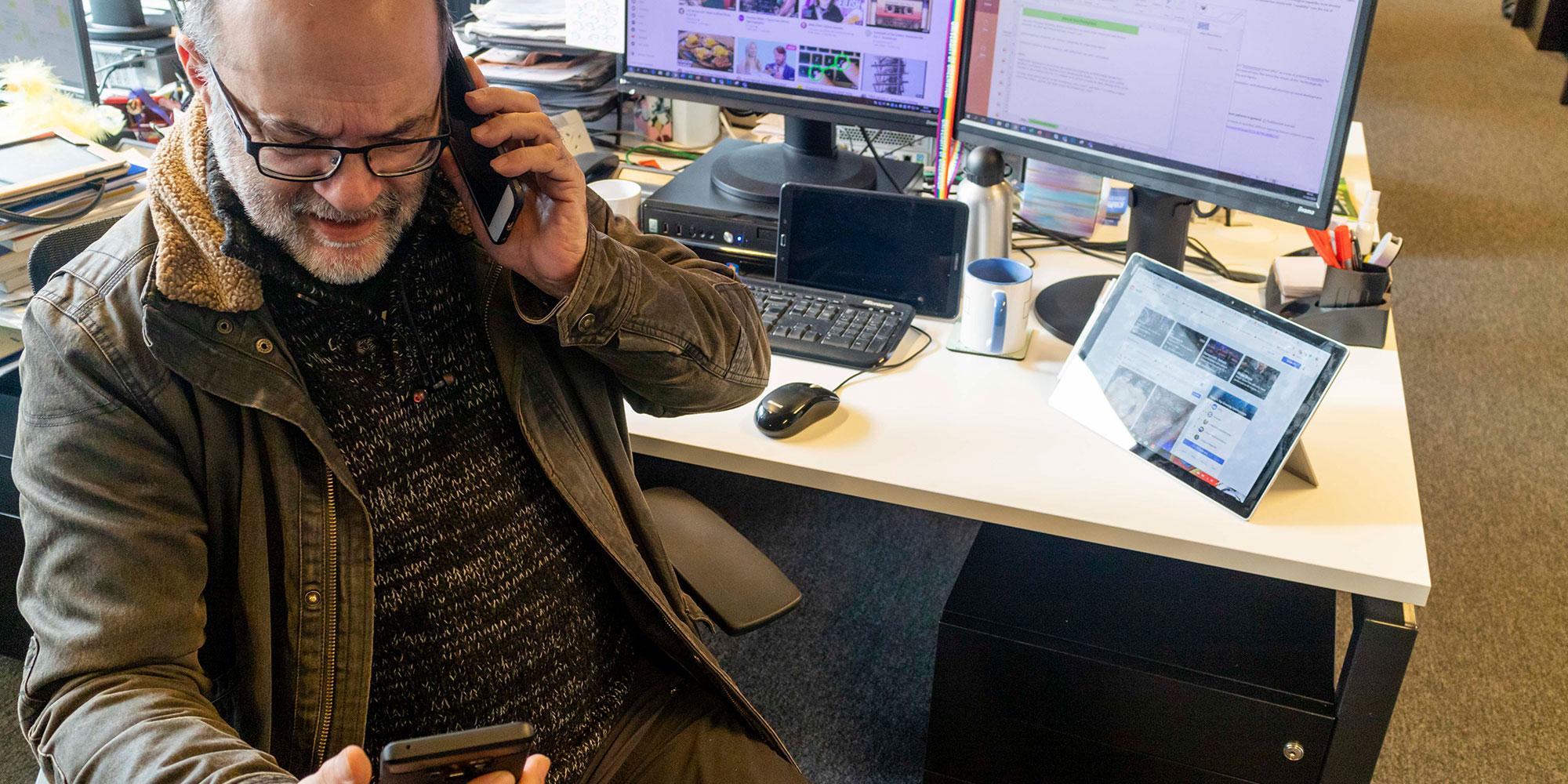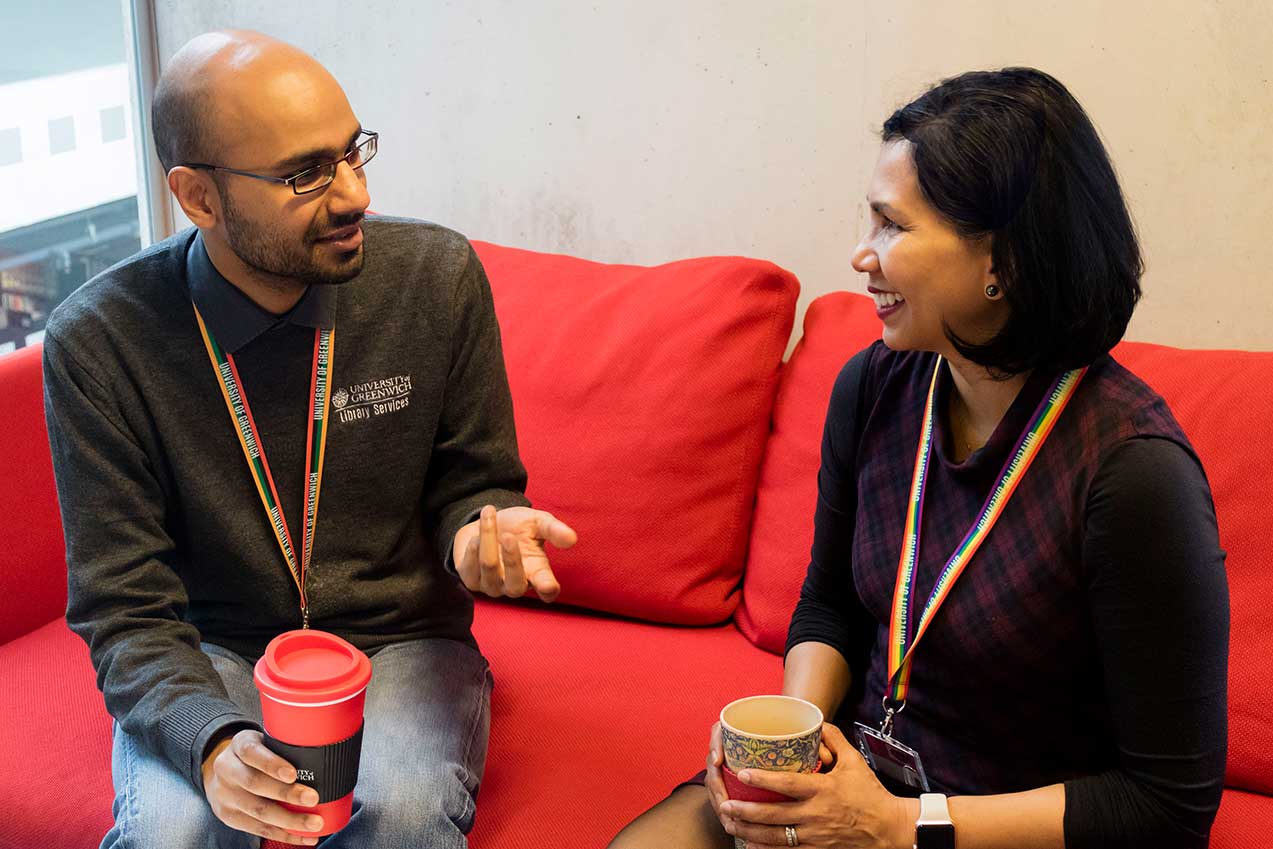Unusual Times 2020-21
Take a look at what your library and academic support team are doing to maintain their mental health and wellbeing right now...
Mike says: The routine and the unexpected – these are the two extremes that I have missed most during the pandemic, when I really think about it...
Routine tends to get a lot of bad press as a close cousin to boredom and conformity, but I think it also gives me 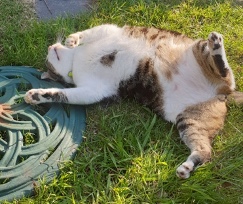 power and control over my day. Getting up at a certain time, getting dressed in appropriate clothes, taking a specific route to a familiar work environment – all of these things provide structure to a day that could otherwise appear chaotic and out of my control. It is this element of routine that can be lost while we are all locked up in one place or constrained in some way. It would be so easy to simply kick about in my Star Wars dressing-gown (yes, I have one, what??) dressed only from the waist up "Teams" style (don't look at me like that, we are all doing it right? …right??) and shamble around in my collection of Avengers socks. See, I know me, I know how I roll, this would be the lifestyle I would lean into and it would get very old very quickly. Every day would blend into an indistinguishable blob where work, play, social and private all collapsed into each other. This would not be a good thing for me. - Mike
power and control over my day. Getting up at a certain time, getting dressed in appropriate clothes, taking a specific route to a familiar work environment – all of these things provide structure to a day that could otherwise appear chaotic and out of my control. It is this element of routine that can be lost while we are all locked up in one place or constrained in some way. It would be so easy to simply kick about in my Star Wars dressing-gown (yes, I have one, what??) dressed only from the waist up "Teams" style (don't look at me like that, we are all doing it right? …right??) and shamble around in my collection of Avengers socks. See, I know me, I know how I roll, this would be the lifestyle I would lean into and it would get very old very quickly. Every day would blend into an indistinguishable blob where work, play, social and private all collapsed into each other. This would not be a good thing for me. - Mike
Sharon says: "Bring nature into your home"
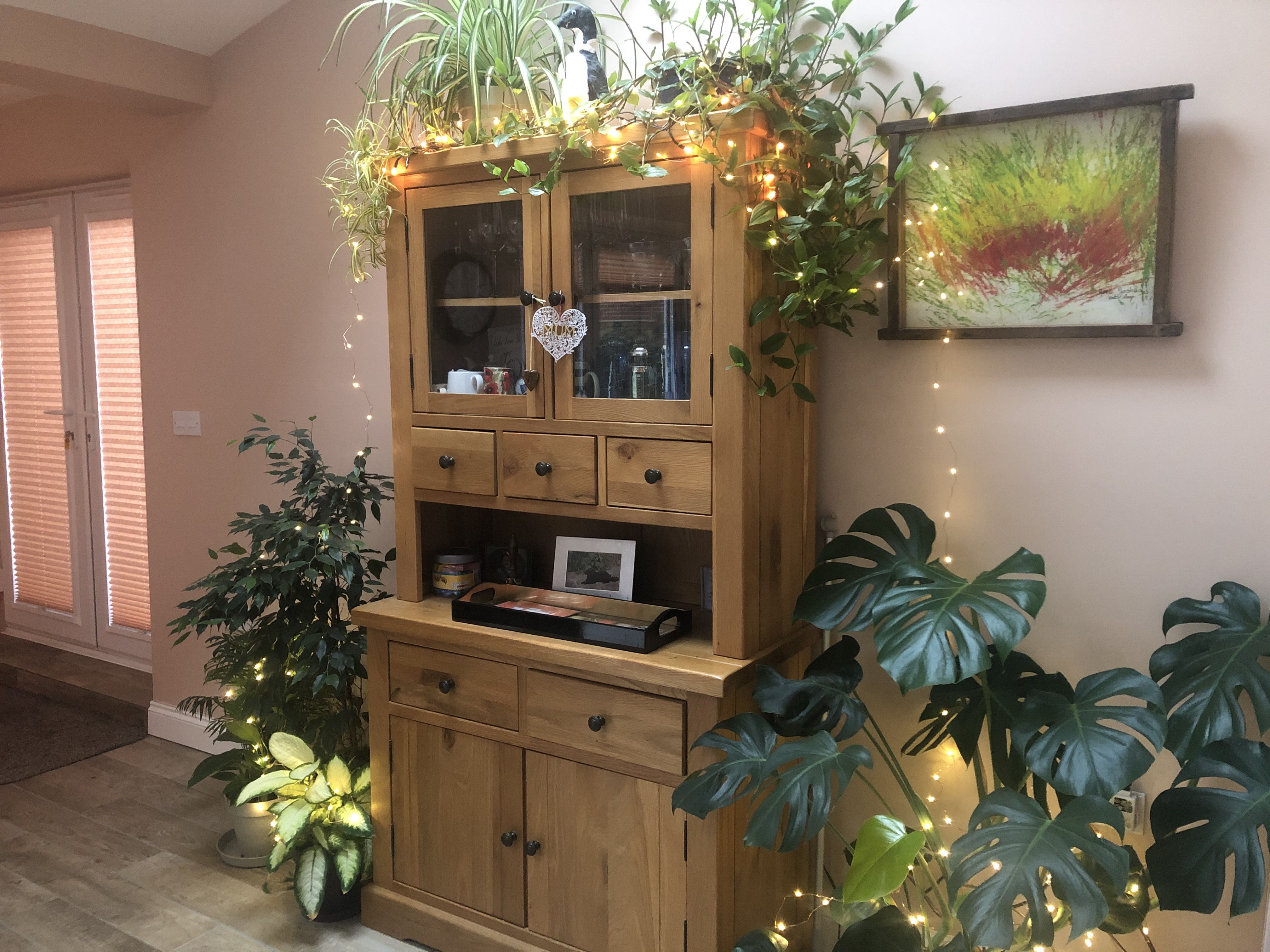
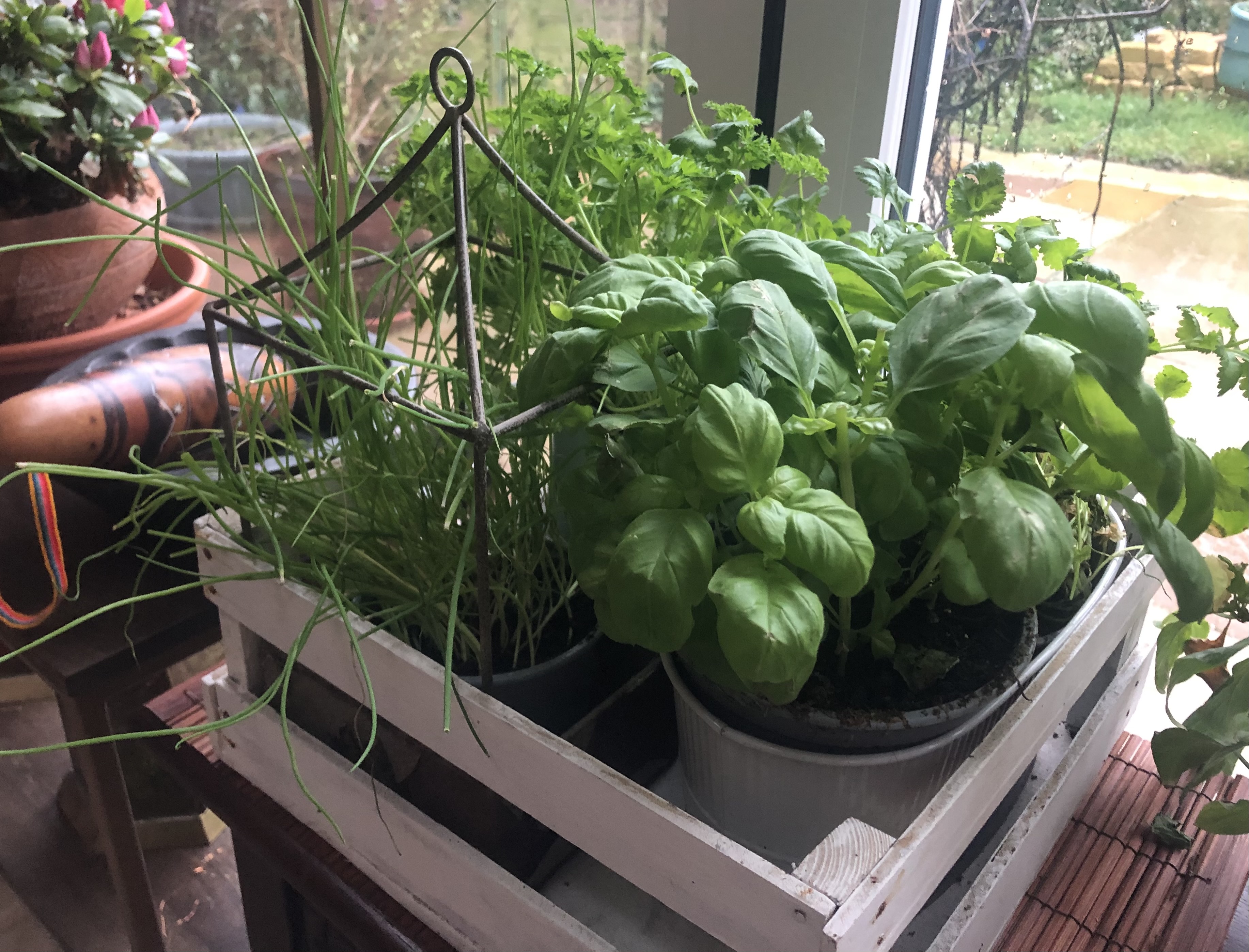
Becky says: "Replace doom scrolling with a positive activity!"

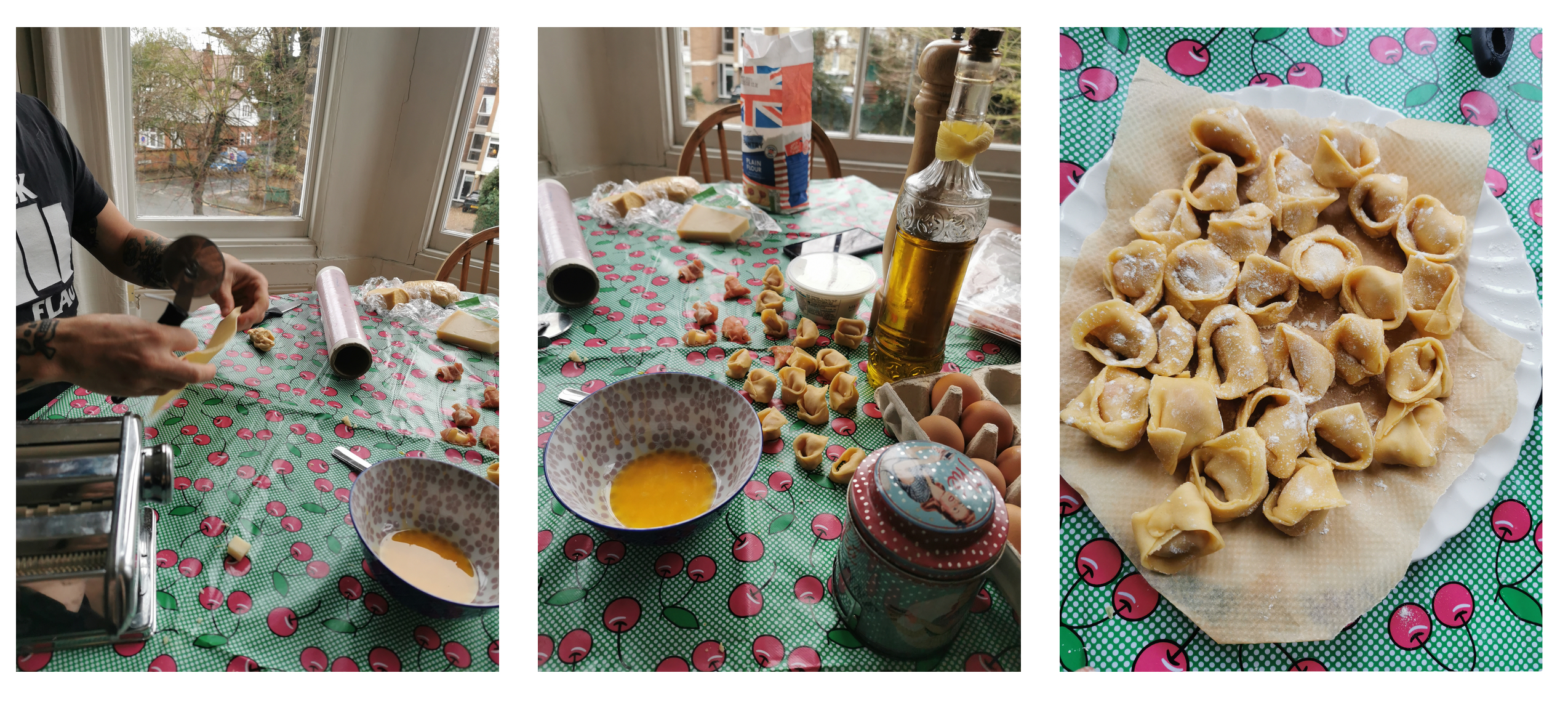
Trudi says: "Sow the Seeds for Mental Health"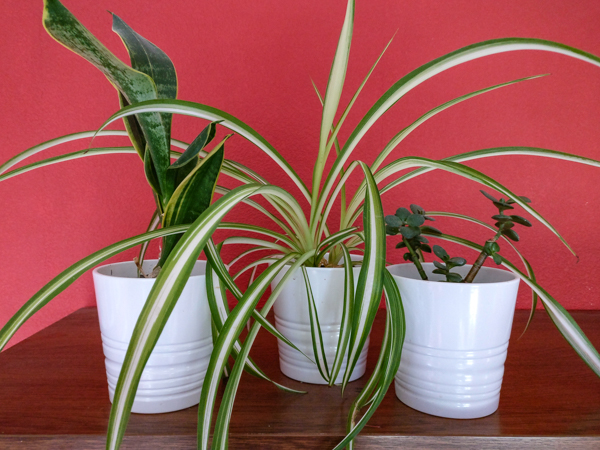
Plants are great for our mental health - find out more!
Rachael says: "Get yourself a little reminder that spring is on the way!"
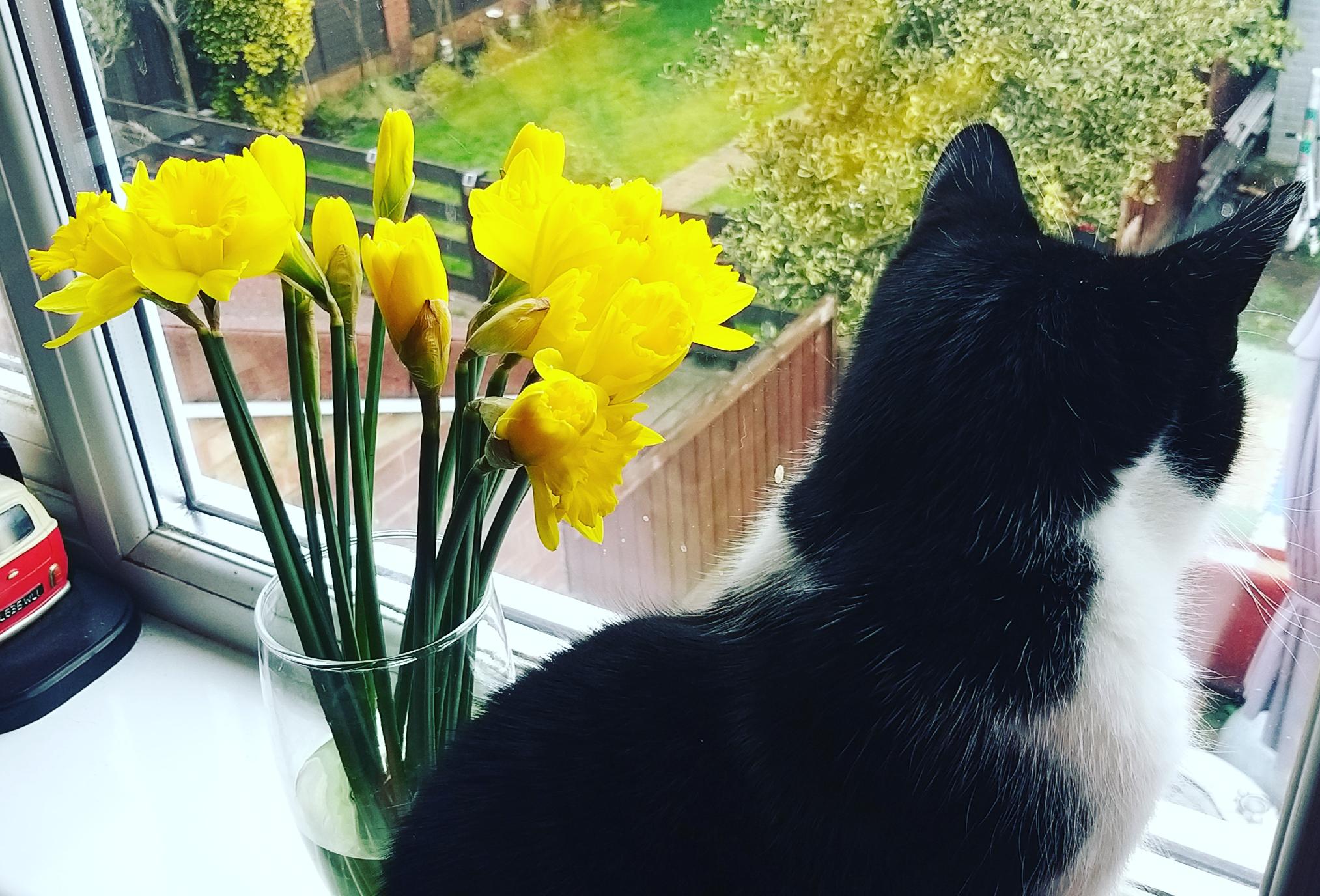
Becky says: "Get crafty, is there something you have always wanted to try but have never had the time, painting, sewing, drawing."

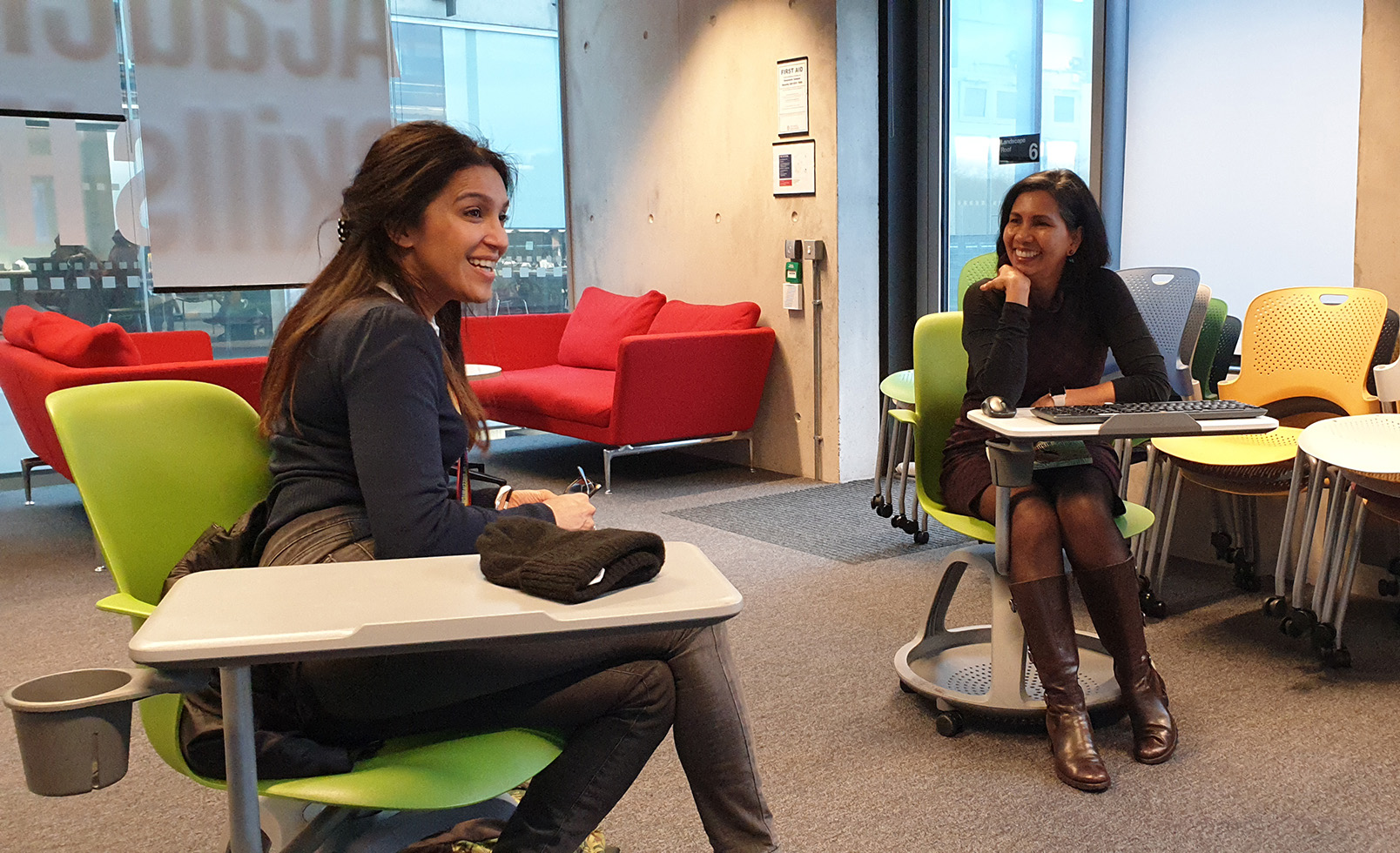 There are a number of useful strategies you can adopt to make the most of your digital engagement without it affecting your well-being. Remember, machines make excellent servants but very poor masters!
There are a number of useful strategies you can adopt to make the most of your digital engagement without it affecting your well-being. Remember, machines make excellent servants but very poor masters!
Digital well-being is a vital part of your overall academic health. Here are some suggestions from your Library Team that you might find useful...
Mike says: "I ... find that engaging in this 'working from home' routine allows me to establish a clear division between working from home and playing from home."
 With that in mind I have tried to maintain a level of routine to my working days. I get up, yup I do that rather than attend Team meetings from bed thinly disguised behind a succession of virtual backgrounds. I get dressed in the clothes I would generally wear for work (I don't do suits but hey, you do you). Most importantly, for some reason, I put shoes on – I don't know why this has become so symbolic for me, but it has. Some people make a point of wearing the office lanyard, same thing I think. Having done all of that I actually "walk to work" by which I mean, I walk round the block and come back home – try it, I find symbolically walking to and from work creates a sense of transition in my day. Once I get home from my end of day walk, I can legitimately ignore messages from my line manager. I also find that engaging in this home working routine allows me to establish a clear division between working from home and playing from home – the weekends still remain authentically mine. - Mike
With that in mind I have tried to maintain a level of routine to my working days. I get up, yup I do that rather than attend Team meetings from bed thinly disguised behind a succession of virtual backgrounds. I get dressed in the clothes I would generally wear for work (I don't do suits but hey, you do you). Most importantly, for some reason, I put shoes on – I don't know why this has become so symbolic for me, but it has. Some people make a point of wearing the office lanyard, same thing I think. Having done all of that I actually "walk to work" by which I mean, I walk round the block and come back home – try it, I find symbolically walking to and from work creates a sense of transition in my day. Once I get home from my end of day walk, I can legitimately ignore messages from my line manager. I also find that engaging in this home working routine allows me to establish a clear division between working from home and playing from home – the weekends still remain authentically mine. - Mike

Andrew says: "I make sure to step away from my computer from time to time to get some fresh air and speak to people"

David says: "Turn off any notifications that you don't really need. This helps you deal with messages, social media or news on your own schedule."
Mike says: "I like to add small surprises to my day for other people to trip over."
 Although much can be said for routine the unexpected is something I also value. Meeting someone by accident in a corridor, hearing a tune that you've not heard for ages while standing in a queue, trying something new for lunch. Being taken by surprise adds important contours to my life and again being confined to a single location, viewing the world through a succession of screens, can take that element out of day to day living. With that in mind I like to add small surprises to my day for other people to trip over. These can be very minor. Changing out your Teams background for increasingly unexpected images for example to more elaborate exercises such as full on cosplay or videoing your line manager in a Teams meeting then streaming it as your video feed at a later meeting to mess with people. It's the little things, right?
Although much can be said for routine the unexpected is something I also value. Meeting someone by accident in a corridor, hearing a tune that you've not heard for ages while standing in a queue, trying something new for lunch. Being taken by surprise adds important contours to my life and again being confined to a single location, viewing the world through a succession of screens, can take that element out of day to day living. With that in mind I like to add small surprises to my day for other people to trip over. These can be very minor. Changing out your Teams background for increasingly unexpected images for example to more elaborate exercises such as full on cosplay or videoing your line manager in a Teams meeting then streaming it as your video feed at a later meeting to mess with people. It's the little things, right?
The point of all of this is take control of your day but also mix it up. It is Mental Health Awareness week. We have a responsibility for friends and colleague's wellbeing as well as our own. Be kind to yourself and each other. - Mike
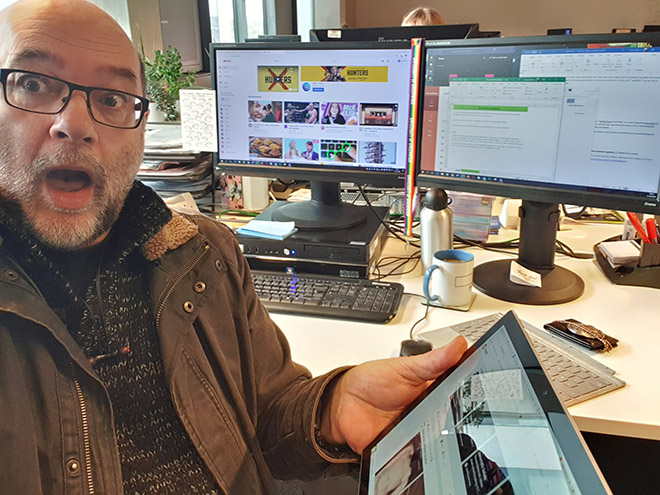
Mike says: "I make use of an app to limit social media time - I use Freedom, but there are many others."
"I don't use my technology to avoid difficult conversations or to retreat from the world."
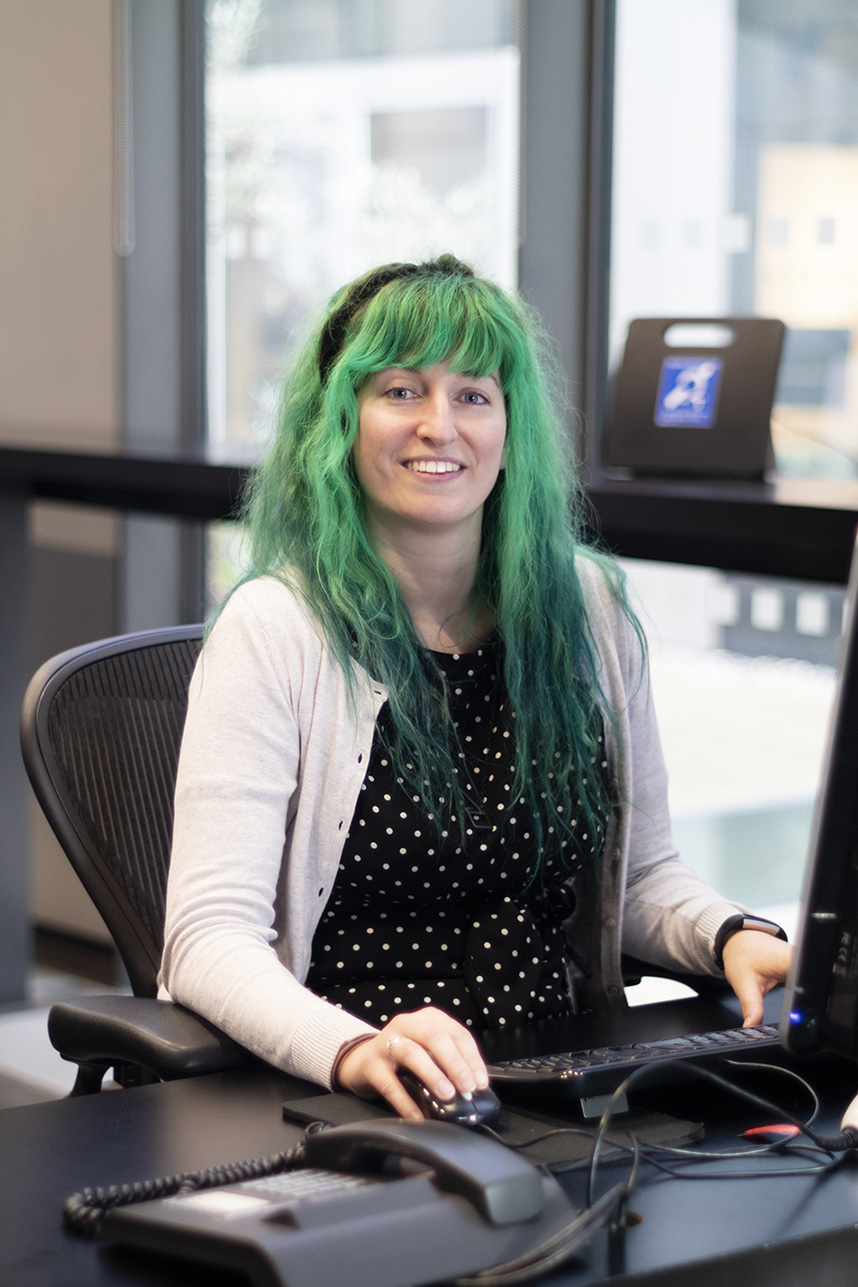
Maira says: "The pressure of being contactable 24/7 across a billion platforms can be overwhelming. I tend to be upfront about it and to manage my friends' and contacts' expectations, as, at times, I may take days/weeks to reply. People do get that and they are usually very accommodating."
"In a world of 24/7 news updates, we are often left feeling anxious, angry, powerless and helpless. Try to take regular breaks from your feeds, move away from sensationalist clickbait-y news sources and focus on the things that you *can* change, in order to make your immediate community (and the world) better."

Tom says: "Reflect for a few moments before posting anything online. It's easy to post a hot take or to have a row with a stranger online who has views that are different to yours. Wait a few seconds."

James says: "I think it's a waste of energy engaging with every debate on the internet, sometimes it's just not worth it. Also remember "Don't feed the trolls""
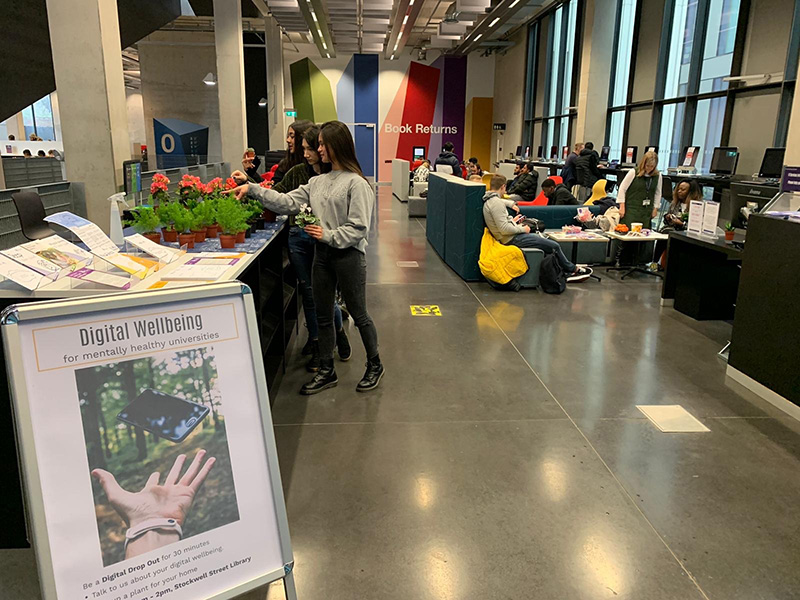 In 2019, before lockdown, our Digital Drop-Out event, part of the universities Mental Health Day, was a great success. Students turned their phones off for 30mins, talked to library staff and collected their free plant buddy! Some students even plan to continue giving themselves a digital break each day, like this business student:
In 2019, before lockdown, our Digital Drop-Out event, part of the universities Mental Health Day, was a great success. Students turned their phones off for 30mins, talked to library staff and collected their free plant buddy! Some students even plan to continue giving themselves a digital break each day, like this business student:
"I am very glad that the university cares about my well-being. I spend a lot of time on my phone and it's nice to see that someone else cares and they will help me with my digital well-being. The Digital Drop-out was a good experiment - I turned off my phone for 30 minutes and now I will try doing this for a whole day or even a whole week!".
